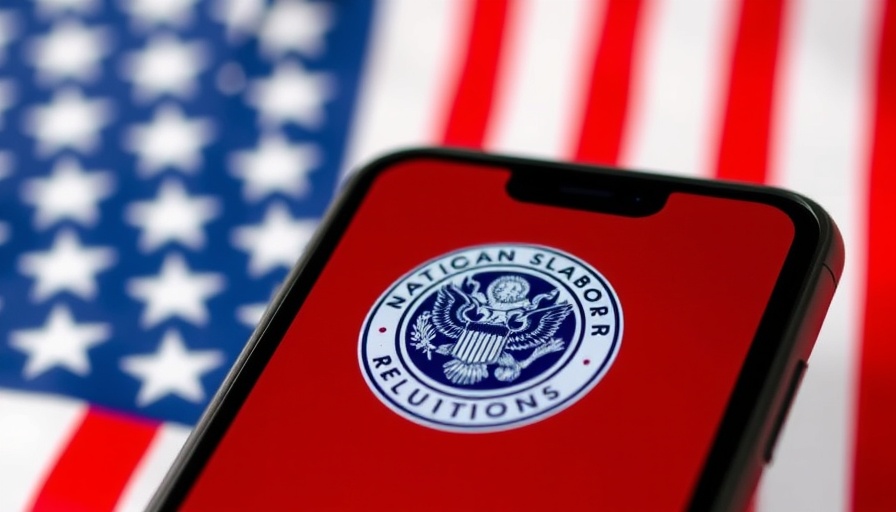
States to Step In: The New Frontline for Labor Law Enforcement
In light of increasing challenges facing the National Labor Relations Board (NLRB)—including staffing issues and political pressures—certain states are taking the initiative to fill the gap in labor law enforcement. This move indicates a potential shift in how labor-related disputes and regulatory compliance might be addressed at both state and federal levels.
Understanding the Implications for HR Compliance
The departure of key NLRB officials and the agency's struggle to meet its regulatory responsibilities have prompted states like California and New York to strengthen their labor laws. As states enhance their protections and enforcement mechanisms, HR compliance officers must stay abreast of these developments as they could affect workplace regulations and employee rights significantly.
Labor Law Evolution: A Parallel Example
This isn't the first time states have had to act where uncertainty resides at the federal level. For instance, during the Obama administration, many states adopted their own labor measures to counterbalance federal policies. Such parallel actions not only illustrate the legal complexities involved but also the increases in employee protection advocacy at the state level.
What This Means for Employers
Compliance with evolving state labor laws will require employers to closely monitor changes and adapt policies accordingly. With potential implications for remote work policies, wage laws, and hiring bias improvements driven by increasing scrutiny, businesses must ensure their practices align with not only federal guidelines but also emerging state regulations.
A Future of State-Centric Labor Regulations?
As states take on more responsibility, a trend may emerge where state labor laws dictate workplace practices more than federal policies. This could open up considerable opportunities for proactive compliance strategies among HR administrators and legal counsel that position their organizations favorably within this changing landscape.
Conclusions and Actionable Insights
For HR and legal professionals, the evolving landscape underscores the need to proactively reassess workplace policies and practices in light of these developments. By keeping informed and ensuring compliance with both state and federal regulations, organizations will not only safeguard themselves against penalties, but can also foster a better working environment that aligns with current labor trends.
 Add Row
Add Row  Add
Add 




Write A Comment